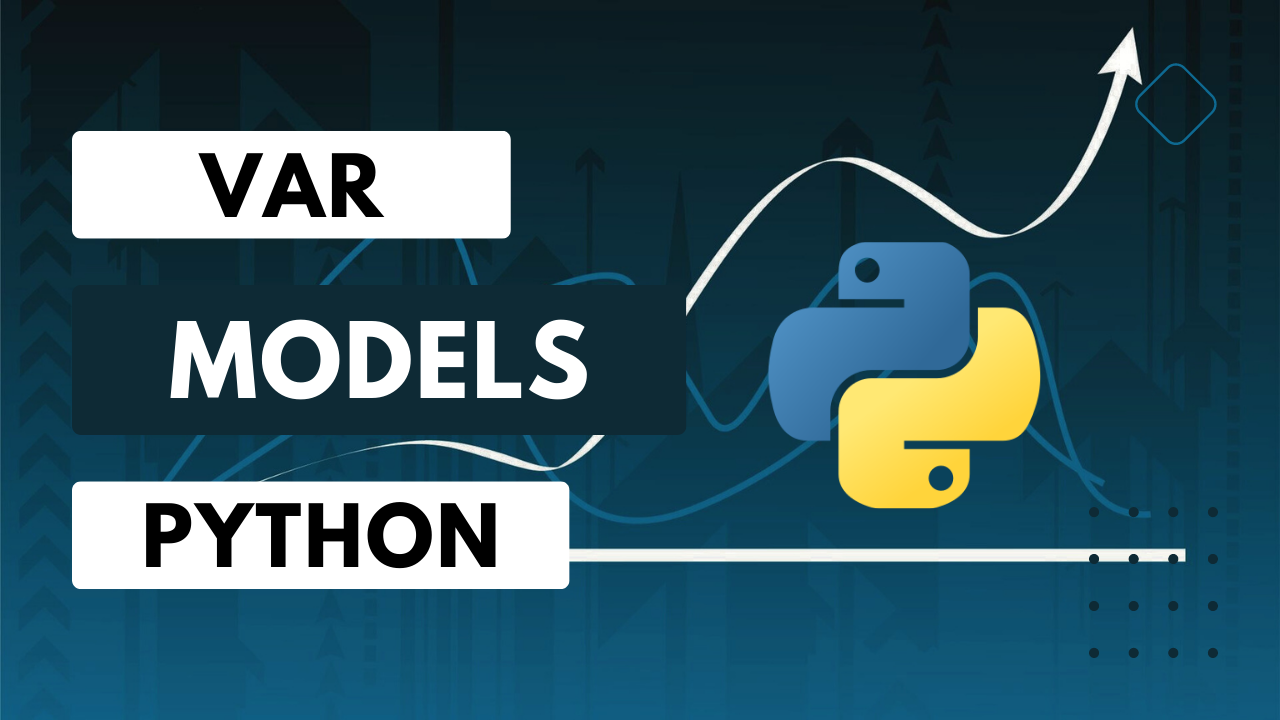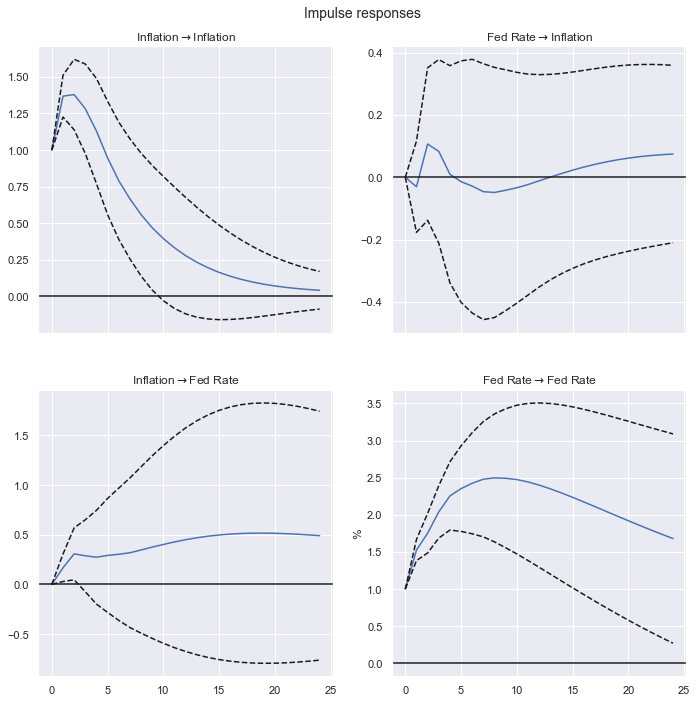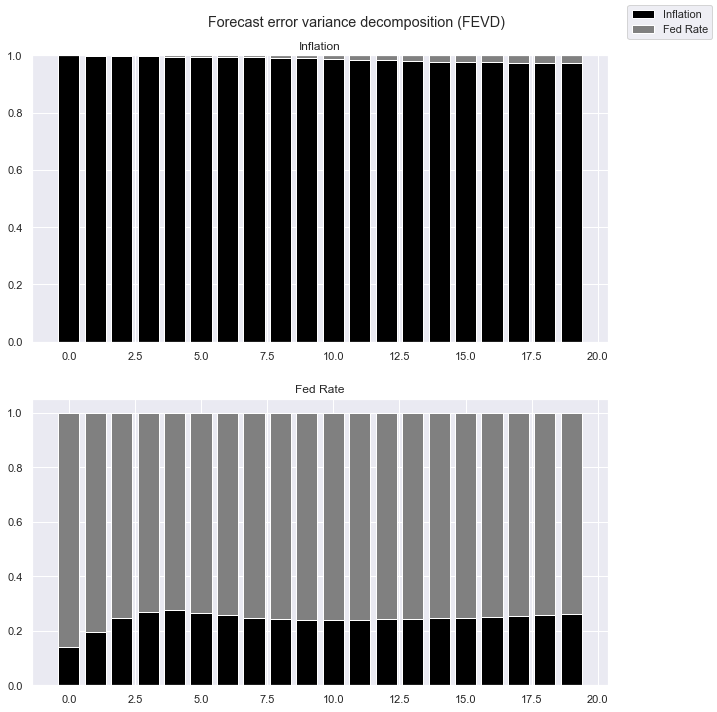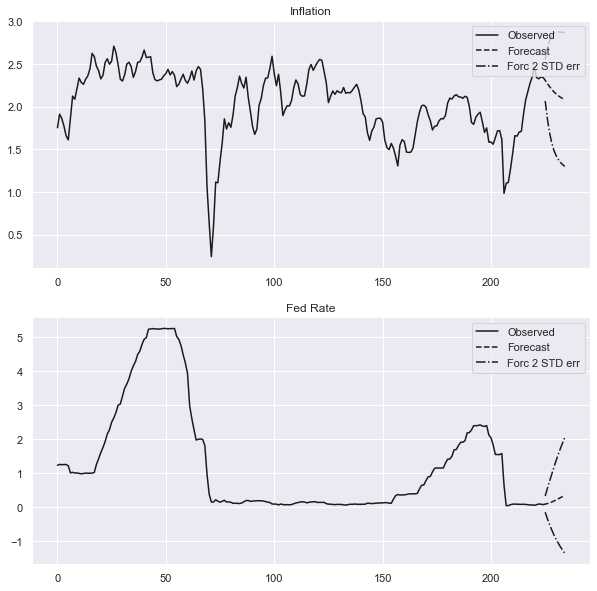
VAR MODELS IN PYTHON
Get Access to the material and video recording of my webinar to learn how estimate Vector Autoregressive (VAR) models in Python.


Get Access to the material and video recording of my webinar to learn how estimate Vector Autoregressive (VAR) models in Python.
Discover the power of Python in estimating VAR models! Get Access to the video recording of my last webinar where I covered step by step how to estimate VAR models in python
Vector Autoregressive Models (VAR) are a class of statistical models used in time series analysis and econometrics. They are designed to analyze the relationships and interactions among multiple variables over time. In a VAR model, each variable in the system is regressed on its own lagged values as well as the lagged values of all other variables in the system.
VAR models are widely used for various purposes, including forecasting, understanding dynamic interrelationships between variables, conducting impulse response analysis, and variance decomposition. They provide valuable insights into the behavior of multivariate time series data and are particularly useful when dealing with systems where variables influence each other in a feedback loop.

Analyze the effects of a one-time shock or innovation in a variable on other variables in the system over time.

How much of the forecast error variance in each endogenous variable is caused by its own past shocks and the shocks from other variables in the system.

Produce accurate out of sample forecasts with confidence bands. Predict the behavior of your variables of interest in the future.

As in most of my tutorials, we will review VAR models in a practical way. We will demonstrate an example with real data.

Enjoy a didactic class, with a mix of theoretical concepts and practical application.

After the lesson, attendants will get access to the material I have used during the webinar as well as the codes to replicate the results in Python.

Python is the most popular programming language in the world, according to the TIOBE Index, a respected measure of programming language popularity. Over the past decade, Python has experienced remarkable growth, nearly tripling its popularity since 2010, and consistently holding the top position on the TIOBE Index in recent years. Its widespread adoption can be attributed to its simplicity, readability, and versatility, making it an attractive choice for various projects. Python finds applications in diverse fields, including web development, scientific computing, data analysis, artificial intelligence, and much more. As a result, numerous forecasting firms, private advising institutions, and government agencies are increasingly embracing Python and other open-source languages like R. Join our webinar now to acquire essential Python skills and thrive in today's dynamic world!
If you are new to Python and you have never installed it, I recommend you to watch the following video, where I cover step by step how install Python in your computer!

Juan D'Amico
Economist
MA, Business Economics - BSc, Economics
This webinar is ideal for beginners and new Python users. During the webinar we will cover the codes involved in the estimation procedure.
Users who don't have Python installed yet are recommended to watch the video posted above where I teach you step by step how to install Python.
Don't worry! The webinar will be recorded and you will get a link with the video and the material. Also, you will have a chance to send me an email with your doubts.
The duration is 40-60 minutes.